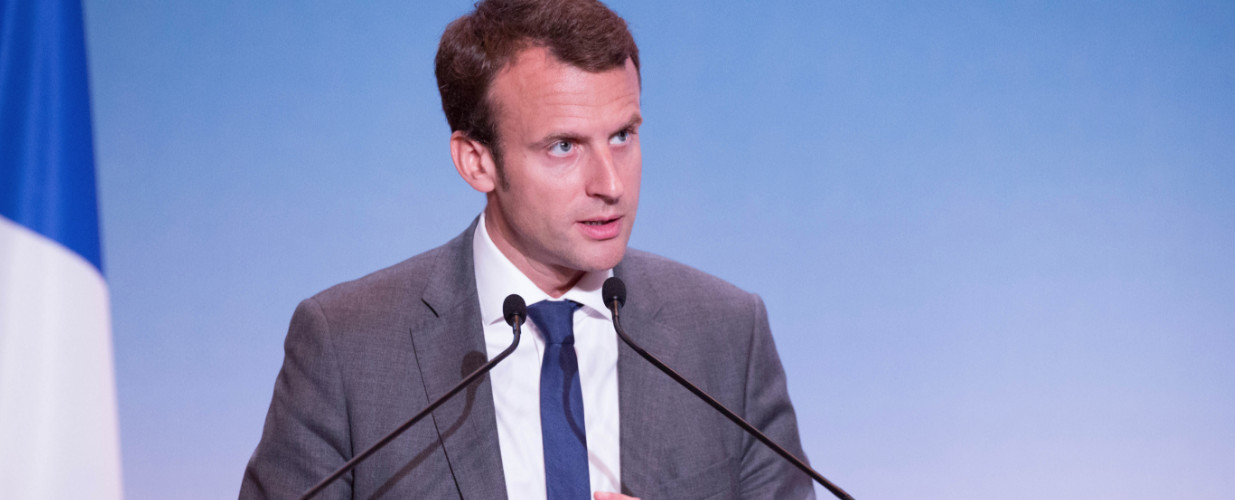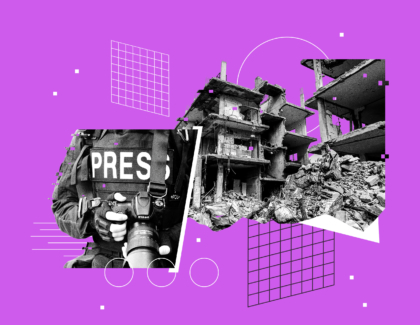Sign up for the daily CJR newsletter.
This week, Emmanuel Macron, the French president, granted a joint interview to a consortium of French regional newspapers ahead of elections to the European Parliament, the legislative arm of the European Union. Two outlets—La Voix du Nord, a Northern French paper headquartered in Lille, and Le Télégramme, which serves the province of Brittany—refused to participate. Patrick Jankielewicz, editor of La Voix du Nord, outlined two reasons for his objection. The interview would swing the balance of campaign coverage in favor of Macron’s allies, he said. And Macron’s office would have the right to review the interview prior to publication.
The latter condition reignited an old debate in French media. For decades, news organizations have given politicians and other public figures the opportunity to review their quotes ahead of time. Often, this practice is quite benign, amounting to little more than a fact-check. In some cases, however, politicians have overstepped that mark, rewriting some phrases, removing others, and even adding answers to questions the interviewer never asked.
ICYMI: “Americans are learning from Trump that much of their democracy was run on the honor system”
The practice has long raised eyebrows overseas, where journalists tend to abide by more stringent pre-publication rules—especially when politicians are involved. “In France, we don’t have this historic attachment to press freedom that there is in the Anglo-Saxon world,” Alexis Lévrier, a French press historian, says. “In the history of the English press, there’s an attitude of criticizing power, and keeping distance from power that we don’t have in France—even today.” (Such skepticism appears to stretch to Germany: when press officers for BNP Paribas, a French bank, tried to edit their CEO’s interview with Handelsblatt, a German newspaper, Handelsblatt published only its questions, leaving white space where the answers should have been.)
Says points to the example, in 2016, of Myriam El Khomri, then labor minister of France, who gave an interview to Les Échos, a national newspaper, about a controversial law she was responsible for pushing through. The office of Manuel Valls, then prime minister, vetted the interview, adding in a key quote that El Khomri never said. Staffers for François Hollande, then the president, subsequently tried to edit the quote themselves. (Their intervention came too late for print.) In April 2018, Les Échos was at the center of another dispute; this time, it refused to publish an interview with Élisabeth Borne, the transport minister, after the prime minister’s office tried to rewrite it. The same month, Society magazine did publish an interview with Macron—but without the edits requested by his team. Society’s owner says the magazine was told it would not be interviewing Macron again.
This week’s Macron episode, meanwhile, wasn’t La Voix du Nord’s first rejection of an interview based on restrictive conditions. Last year, the paper took the rare step (for France) of announcing that it would no longer let politicians see or meddle with interviews prior to publication—period. In a message to readers, Jankielewicz, the editor, said the practice had mostly become an exercise in rewriting. “I said, ‘that’s enough. It’s too much. We’re going to stop that now,’” he tells CJR.
La Voix du Nord’s stance sparked a conversation as to whether others should follow suit. In an era of growing political polarization and media distrust, critics said, the practice had become a bad look, giving readers the impression that the press willingly submits to political control. Politicians’ words, others countered, can move markets, spark international tensions, and even carry the force of law. On Twitter, Nicolas Chapuis, a reporter at Le Monde, argued that sharing quotes can be a safeguard against taking them out of context, particularly when a lengthy interview has been chopped and changed to fit a short word count. Many politicians, he added, engage in the process in good faith, making only minor clarifications where necessary.
As Chapuis pointed out, it’s up to journalists and their outlets to resist attempts at manipulation. But those, it would seem, are becoming more common. And, while Macron’s presidency didn’t start this debate, his broader treatment of the press has arguably made it more urgent.
Macron has repeatedly expressed his disdain for journalists. Shortly after his election, in 2017, he refused to do a traditional TV interview because his thoughts were “too complex” for the forum; last year, his government said it would be closing the press room inside the presidential palace. (Journalists can still use it for now, but an alternative facility outside the grounds has been prepared.) In recent weeks, meanwhile, Macron’s administration has twice called journalists to testify to intelligence services over their reporting. “All that, taken together, gives the impression of a power that wants to protect itself to the maximum from journalists—that wants to control who gets to write and who gets to see,” Says says.
Such context makes this week’s request more concerning than a mere continuation of old precedent—though some think the latter is bad enough. “Macron swept to power promising to make a big break with the past, and clean up French politics,” Michel Rose, who covers Macron for Reuters, says. “On the issue of the relationship between the media and politics, he had some very strong views, which he expressed many times, about the fact that there should be no collusion between journalists and politicians.” (Macron, Rose says, balked at the behavior of Hollande, his predecessor, whose close relationship with certain reporters was seen, by many voters, as indiscreet.)
This week, Macron’s team privately scolded journalists who reported his rejection by La Voix du Nord and Le Télégramme, Rose says. Publicly, it insisted that asking to see the interview was a preference not a demand. A press person told Rose that such requests ensure an important public official is not misquoted. This, however, does not appear to be the limit of Macron’s intentions. According to Nice-Matin, a Southern newspaper that did run the joint interview, Macron aides tried to replace the word cache-sexe—which literally means a cover for the genitals but translates figuratively as a fig leaf—with a less raunchy term. Nice-Matin refused.
So far, however, no one has followed La Voix du Nord’s lead and made blanket refusal their policy, Jankielewicz says. Such a move could have journalistic costs—as Jankielewicz noted in his 2018 message to readers, banning preconditions makes it less likely that important people will agree to interviews.
Since then, however, several high-profile interviews have appeared in La Voix du Nord, including with Édouard Philippe, the prime minister. And banning a potentially compromising practice could engender increased reader trust. French news consumers are “more and more distrustful of the press, exactly because of things like this. They’re demanding more independence, more freedom of tone,” Jankielewicz says. “I think readers, listeners, and viewers no longer accept this sort of complicity with politicians.”
ICYMI: French prosecutors tied to Macron attempt newsroom raid after critical stories
Has America ever needed a media defender more than now? Help us by joining CJR today.







